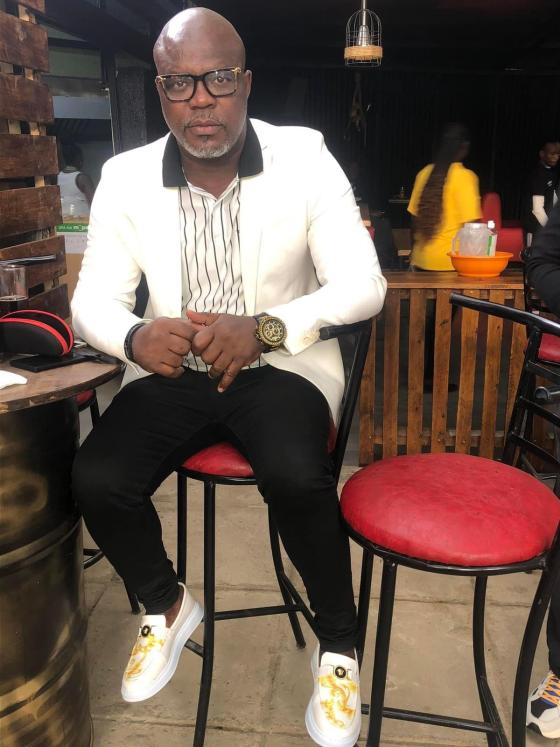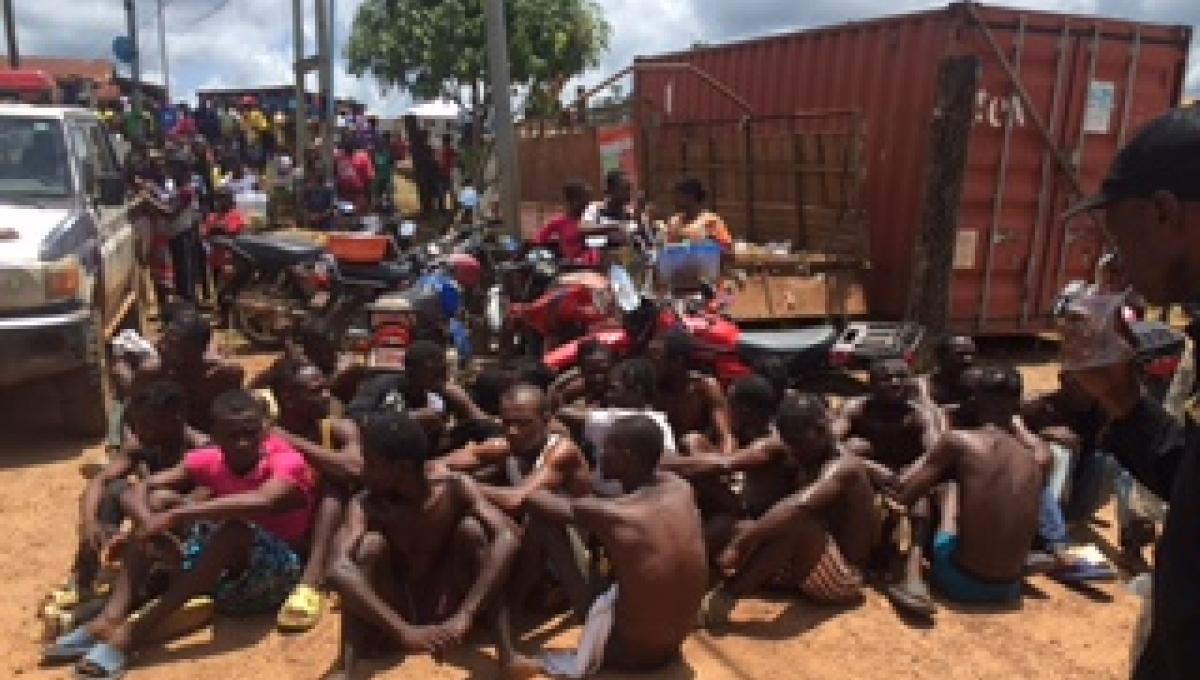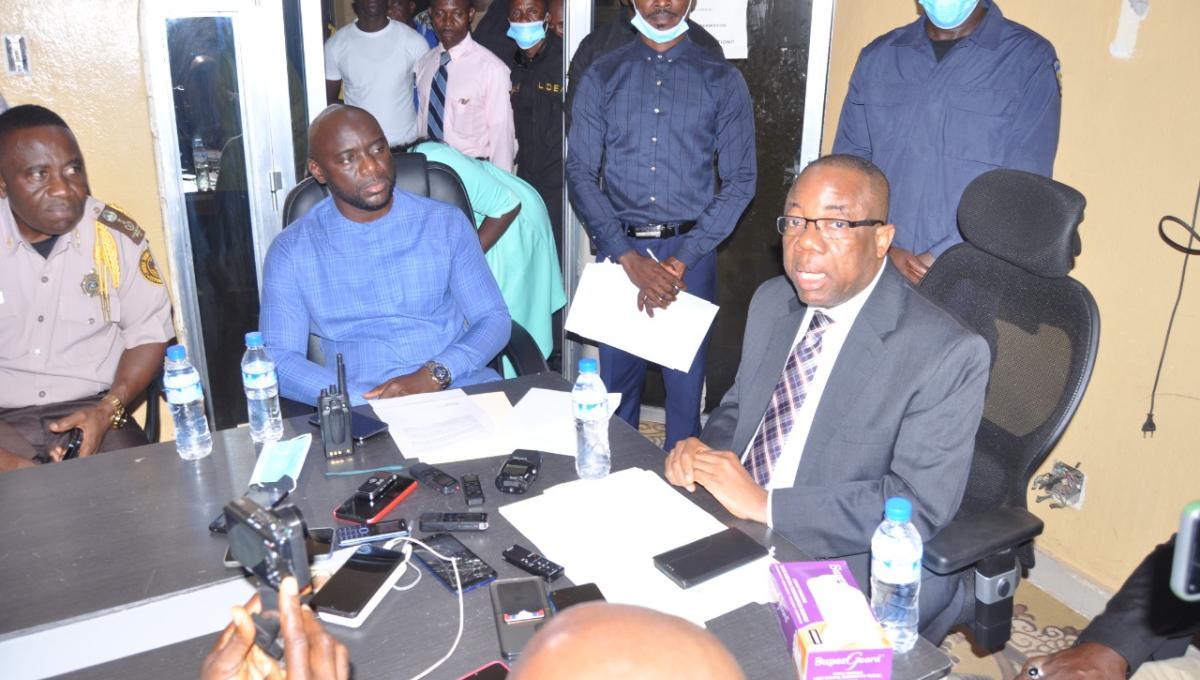Liberia: Key Player in US$100M Cocaine Bust Released from Prison

Oliver Zayzay
One of the rank-leaders involved in the attempted smuggling of US$100 million worth of cocaine into Liberia has been released from the Monrovia Central Prison without any record of a court order.
The release of Oliver Zayzay, who along with Makki Ahmed Issam, Malam Conte, Mustapha Baldeh, and Adulai Dibril Dialo were arrested a month ago, now presents a huge setback in the government’s war on drugs.
The estimated value of the drugs is one-fifth of most of Liberia’s post-war annual budgets since the country’s civil war ended in 2003.
“We want to be clear that Liberia will not be a haven for drug traffickers — whether as a point of transit or final destination,” Justice Minister Frank Musah Dean said in October. “Those arrested will face the full force of our law.”
But a month later, Zayzay has now been freed from prison without any record that he posted a bail, which if he had done, needed to be argued before the stipendiary magistrate of the Monrovia City Court before a determination on the matter can be made.
Under Liberia’s current laws, drug smuggling is an offense for which suspects can get bail, providing that a valid criminal appearance bond is filed, which is then cross-examine before a decision can be taken by the president, judge, or magistrate.
This however is not the case, as Zayzay, who along with his narcotics trafficking associates, had been charged with the crimes of unlicensed importation of controlled drugs or substances, substance drugs trafficking, money laundering, criminal conspiracy, and criminal facilitation, as per Chapter 14, Sections 14.101, 107 and 111 Chapter 10.2 and 10.4 respectively, of the new penal code of Liberia, is no longer in prison.
Zayzay, who owns Prime Logistics and Supplies, according to an investigation by the state, facilitated the escape to Sierra Leone co-suspects Issam and Djalo, who were also wanted for the trafficking of cocaine to Liberia.
He used an illegal crossing point via the Mano River under the cover of darkness to escape arrest along with Issam who, according to investigators, was part of the cartel tasked with negotiating with local businesses to buy their container once the frozen goods had arrived at the port in Monrovia.
However, Zayzay’s release could also be detrimental to the whistleblowers who were believed to have tipped off the American Embassy, which pass down the intelligence that led to the Liberia Drug Enforcement Agency busting the 520 kilograms (1,146 pounds) of cocaine concealed in a huge consignment of frozen pig feet that had been delivered to a cold storage facility, operated by TRH Trading.
TRH Trading is also an importer of frozen foods but leases out space to AJA Group to park some of its refrigerated containers there when Abi Jaoude and Azar (AJA) Group Holdings runs out of space at its Bong Mines Pier facility.
The whistleblowers’ fear comes as a result of threats made to their lives by some of the suspects involved with the shipment of the contraband.
“The other shocking thing is, we saw that Conte, the Guinea Bissau man, had been taking our pictures and sending them to a Portuguese number via WhatsApp. So this man has put us at unknown risk,” the Daily Observer was told a month ago.
The cocaine story
The intelligence that led to the bust of the US$100 million consignment of cocaine came when Zayzay and his Brazilian associate entered the office of AJA Group at Bong Mines Pier, Monrovia, asking to purchase an entire container of pig feet on September 30.
The first attendant they spoke with, the Daily Observer earlier reported, requested more details since the men appeared to desire an unusually large purchase. AJA group brings in containers of fresh frozen food — partly to supply its own supermarket, as well as for other merchants, including market women.
“We want to take it to Abidjan to sell,” Zayzay told the attendant at the AJA Group office.
This was the first red flag. Being quite aware of the supply and demand in the sub-regional market, the attendant quickly told Zayzay and his colleague that pig feet was not what the commodity usually requested by the Ivoirians. It was chicken.
In any case, the attendant sent the two men to one of the managers to sort out their order request. But, by the time the two men reached the manager, their story had changed. Now they said they wanted the container of pig feet, but not for Abidjan. They said they would use the pig feet locally, as bait for an upcoming political campaign.
“But didnt' you just request downstairs for Abidjan?” the manager asked. An argument ensued, but in the interest of securing their objective, the Brazilian ordered his Liberian colleague to leave the matter.
The manager quickly made it known to the men that AJA Group could not sell them an entire container of pig feet because they had other distribution obligations to fulfill. However, after some back-and-forth discussion, the manager informed them that the company had enough supply to sell the men one container of the product from AJA Group’s Bong Mines Pier frozen storage facility.
“Before we could tell him the cost,” the manager narrated, “he said he would pay US$200,000. You would probably want to first find out how much for the container before you bring your US$200,000 offer. But he made the offer before we even told him the cost. So that threw us off again.”
According to AJA Group, a container of fresh pig feet is currently worth no more than US$30,000.
“Okay, we will source from our Bong Mines Pier office the quantity that you want,” the manager told the two men.
“No. I don't want it from here,” the Brazilian said. “I want it from your location on Somalia Drive.”
The location on Somalia Drive (now Japan Freeway) is the Sonit Warehouse — a cold storage facility taken over and operated by TRH Trading. TRH Trading is also an importer of frozen foods but leases out space to AJA Group to park some of its refrigerated containers there when AJA Group runs out of space at Bong Mines Pier.
The manager then asked the Brazilian: “Why that particular location?”
The man replied that he wants pig feet that came out from a particular container. He even called the container number.
“So how you managed to know the container number and the content of the container?” the manager asked.
After another round of back-and-forth, the Brazilian man said, “You know what, I will pay you all US$400,000.”
The manager began to think the man was joking and asked if he had that kind of money to pay. The man brought the money, cash. “But not in new bills,” the manager said. “It was in our regular old bills we have around here. That told us right away that this man got this money locally.
Liberian Senate
Meanwhile, Zayzay’s release comes at a time when the Liberian Senate has amended the drug law which categorizes drug offenses into two, hence making it non-bailable and bailable depending on the gravity of the crime.
In the wisdom of the Senate, those who are involved in the importation, distribution, massive production, and custody of illicit drugs shall not be granted the right to bail when caught in the act, while the end users of the drug shall have the right to bail when apprehended in the act.
The passage of the Act was preceded by a report from the Senate Committee on Judiciary, Claim, and Petition, accompanied by a motion filed by Grand Bassa County Senator Nyonblee Karnga-Lawrence.
President Pro Tempore Albert Chie appointed a Conference Committee to work with the House of Representatives in harmonizing key components of the Act, which was previously passed by the House of Representatives for onward submission to the Senate for concurrence.
Those appointed to the Conference Committee include Senators Varney G. Sherman of Grand Cape Mount County, Nyonblee Karnga Lawrence of Grand Bassa County, Augustine Chea of Sinoe County, Steve A. Zargo, and Joseph K. Jallah of Lofa County.


